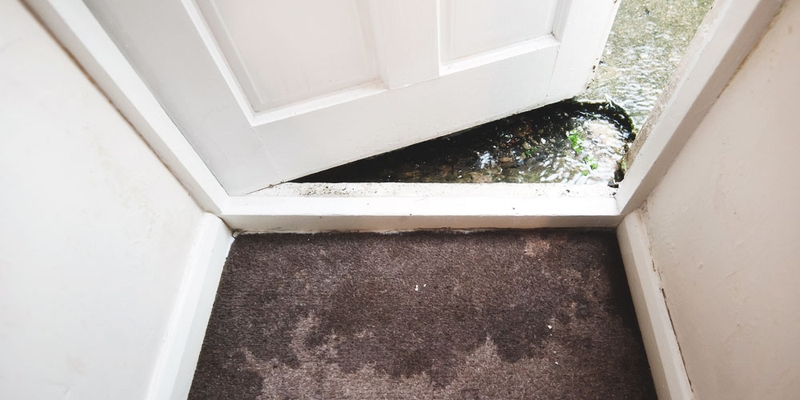
If you are not redirected within 30 seconds, please click here to continue.
Samedi: 10h – 16h HAE

If you are not redirected within 30 seconds, please click here to continue.
If you are not redirected within 30 seconds, please click here to continue.
Can your home insurance provider stop covering your water damage claims?

Soaking in a large body of water is comforting except when it’s in your basement, overflowing your toilet or making an unwelcome visit in your yard or home because of a broken pipe.
If you’ve already made an insurance claim for water damage and you’re faced with making another one, you might be wondering: is there a limit to the number of water damage claims I can make? And at what point could my home insurance provider stop accepting them?
Multiple home insurance claims might spell a bigger problem
There is no industry standard for how many water damage claims can be made, says Rob de Pruis, the Insurance Bureau of Canada’s national director of consumer and industry relations. “Every insurance company has different risks, appetites, and different circumstances.”
The thing to keep in mind, he says, is that insurance is intended for unexpected one-off incidents, not for home maintenance. “When we start having multiple claims, that’s usually a situation where it’s no longer unforeseeable, sudden and accidental. There’s an underlying issue and it would depend on whether or not that insurance provider would continue to offer coverage.”
De Pruis says that overland flooding and sewer backup coverage are optional coverages that you can add to a standard home insurance policy. “So if you have a water claim, and you have the right coverage, your insurance company is there to help you.”
However, that can come with a higher deductible and premium. “For example, homes that are in higher risk areas, like on a floodplain [will] have limited coverage availability for flooding, meaning you might have lower policy limits or higher deductibles. In some cases of really high risk, that insurance company might not even offer that coverage.”
He explains that before the 2013 flooding in Alberta, overland flood coverage was not readily available in the industry and was only offered starting in 2015. Overland flooding isn’t the only form of water damage, though. There’s also basement flooding, busted pipes, and broken water heaters.
Basement floods
Your home insurance coverage would continue in the case of a basement flood as long as the issue gets resolved. For instance, the broken or burst pipe is fixed, the foundation is repaired, or the landscape is regarded to direct water away from the home.
But if the root issue is inherent, then having your claim accepted could be more difficult. An example would be a condo building with faulty piping or faulty joints that weren't connected properly. This could lead to multiple claims.
While the condo owners’ insurance policies won’t be affected as the pipes are the responsibility of the condo corporation, the building itself could have problems getting insurance or paying higher premiums and deductibles. These costs would be transferred to the owners via increased monthly maintenance fees or a yearly special assessment.
Water heaters
Most insurance companies won’t cover damage caused by a water heater. That’s because heaters have a finite lifespan of 10-15 years and the insurance company expects the homeowner to maintain and replace it as needed.
There are, however, some specific insurance policies that will provide coverage as long as you maintain your water tank, says de Pruis.
“The insurance company is trying to mitigate against a foreseeable water loss and is trying to encourage that property owner to do the required maintenance.”
Broken pipes
Insurance should cover sudden and unexpected claims for burst pipes, but won’t if they weren’t properly maintained. If the homeowner was aware of the damage or wear to the pipe, such as rusting, and didn’t fix the issue, then their claim may be denied.
If you’re going to be away from your home for an extended time, check your insurance policy as most require the homeowner to have their home checked regularly while they’re away. If a pipe bursts and no one was checking the home, the damage may not be covered by insurance.
Taking steps to mitigate incidents and working with your insurance company can help you keep your coverage. Sometimes, it can be as simple as documenting your efforts to fix the issue or not running your dishwasher or washing machine before leaving the house. Water can get everywhere. Preventing it from causing expensive damage can save you money on your policy, and ensure your claim is always accepted.
Interested in creating content with Rates.ca? Contact us at email@rates.ca.
Don't waste time calling around for home insurance
Use Rates.ca to shop around and compare multiple quotes at the same time.
Finding the best home insurance coverage has never been so easy!
Get money-saving tips in your inbox.
Stay on top of personal finance tips from our money experts!










